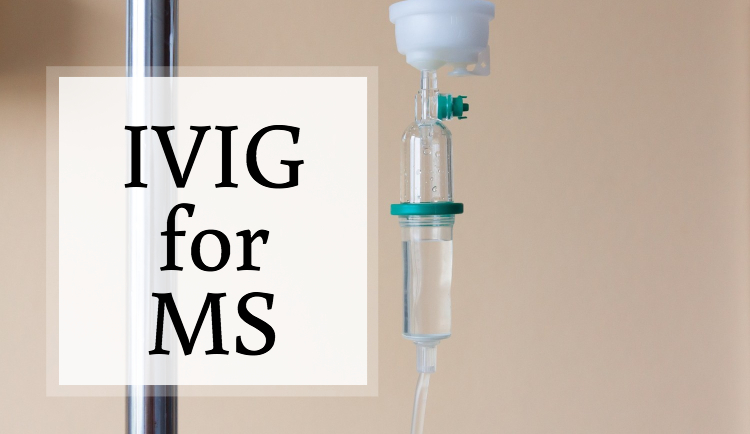IVIG for MS may help reduce symptoms of the disease and its progression. Always speak with your doctor regarding the best treatment plan for you.
Multiple Sclerosis, or MS, affects the brain, spinal cord, and optic nerves. It is the result of the body’s immune system attacking a substance called myelin, which wraps around nerve fibers to protect them. Without myelin, exposed nerves can become damaged, often forming scar tissue, which interferes with nervous system functions. This is where multiple sclerosis gets its name, which means “many scars.”
IVIG for MS Benefits
Intravenous immunoglobulin, commonly referred to as IVIG, is generally used to help the body fight off disease by boosting the immune system. A derivative of donated blood, this medicine is made by filtering antibodies from many donors and pooling them together in a liquid suspension.

IVIG has been shown to be effective for treating some neurological diseases by increasing the functions of some parts of the immune system while decreasing others. As an off-label treatment for MS, IVIG is used to help slow the progression of the disease as well as reduce the symptoms and disabilities it causes. Doctors also believe that it can lengthen the time between relapses for those suffering from relapsing-remitting MS (RRMS).
MS-Specific Uses for IVIG
Currently, IVIG is not a general treatment for multiple sclerosis at this time. However, it is used in more specific areas where it has been shown to be particularly effective.
- Patients who cannot tolerate common therapies: IVIG use is recommended in cases where patients are unable to tolerate currently common MS therapies such as those that use Copaxone, Betaseron, Avonex, and Rebif.
- Pregnant women: Some studies have shown that IVIG can reduce the chance of having a relapse during pregnancy.
- Postpartum women: In about one-third of all cases, women with MS will experience a relapse after childbirth. IVIG has been shown to be effective in preventing these relapses.
- People with primary progressive MS: A European study showed that IVIG could help to slow the progression of multiple sclerosis in people with primary progressive MS.
How Effective is IVIG for MS?
 At present, the medical community is fairly well divided on the effectiveness of IVIG for treating multiple sclerosis. Some studies seem to show beneficial effects from IVIG treatments while others report that there is no significant difference between patients treated with IVIG and those given a placebo.
At present, the medical community is fairly well divided on the effectiveness of IVIG for treating multiple sclerosis. Some studies seem to show beneficial effects from IVIG treatments while others report that there is no significant difference between patients treated with IVIG and those given a placebo.
In an article published in 2008, Professor Jeffrey A. Cohen discusses the meaning of some of these conflicting reports and stresses that none of the studies conducted so far are considered to be definitive. However, he has indicated that several studies demonstrate the beneficial effects of IVIG in relapsing–remitting multiple sclerosis. The magnitude of the benefits in terms of reductions in relapse rate and MRI lesion activity seemed to be favorable.
Possible Side Effects of IVIG
 As with most medical treatments, someone treated with IVIG may experience side effects. Some of the most common side effects include:
As with most medical treatments, someone treated with IVIG may experience side effects. Some of the most common side effects include:
- Headache
- Fever
- Joint pain
- Chest pain
- Nausea
- Vomiting
- Rash
There are also rare, but serious, side effects such as kidney failure or dysfunction, aseptic meningitis or what are known as thrombotic events which include things like stroke, pulmonary embolism, heart attack, or deep vein thrombosis.
For these reasons, IVIG is not to be used on patients with an IgA deficiency or existing kidney problems or failure. For people with heart problems or diabetes, doctors advise using IVIG only with a great deal of caution and careful monitoring.
If you have questions about IVIG for MS or think it might be a good treatment option for you, talk with your doctor. He’ll be able to help you weigh out the potential pros and cons to developing an effective overall MS treatment plan.